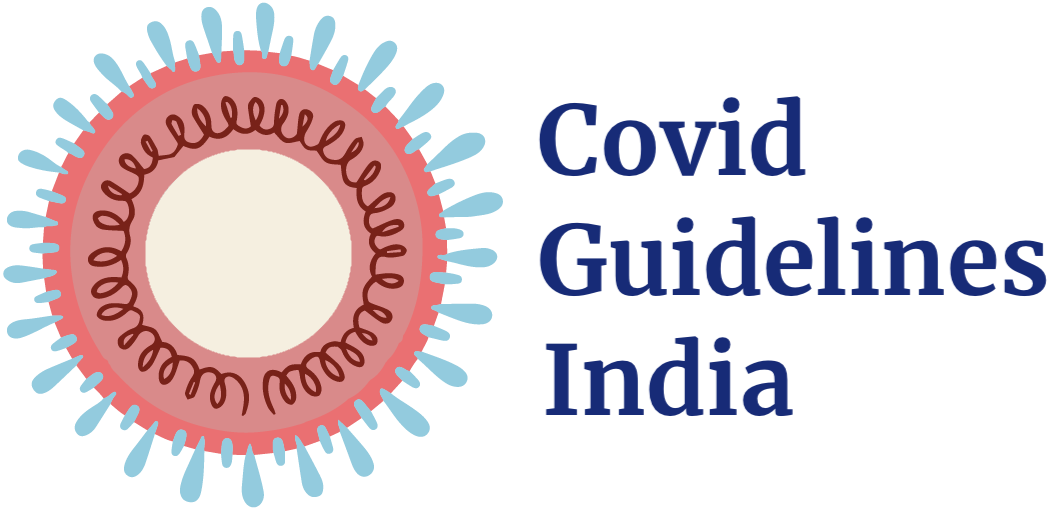Scope & priority areas
The guidelines will focus on treatment of patients with acute COVID-19 in India. The target end users will be clinicians and those developing local guidelines in secondary and tertiary care settings. They will also take into account what is likely to be relevant for other low- and middle-income countries.
Treatments will be grouped broadly as follows, with Expert Working Groups for each collection of interventions:
- Pharmacological interventions:
- Antivirals
- Anti-inflammatories
- Anticoagulation
- Antibodies
- Respiratory support treatments
- Other supportive management
The Core Committee and leads of the Expert Working Groups decide on specific areas of highest priority, focusing on the degree of importance to patient care, and clinical equipoise. They develop ‘PICO’ and other questions of relevance to the management of COVID-19. Questions are then discussed and prioritised centrally by the Steering Committee. The prioritised questions are then presented to the External Advisory Panel, and consensus is arrived at between them and the Steering Committee. Further, decisions will be made, with advice from the Methodology Committee, on which of these have established high-level evidence in the form of well-conducted systematic reviews, which are likely to benefit from a systematic review, and which may require expert consensus.
Collaborating partners
Technical Partners have been identified from Clinical Infectious Diseases Society (CIDS) in India, Prof BV Moses Centre (BVMC) and Clinical Epidemiology unit at Christian Medical College (CMC) Vellore and Cochrane Infectious Diseases Group (CIDG). CIDS consists of a group of Infectious Disease clinicians who have been managing patients with COVID-19 cases, who contribute to the Expert Working Groups and provide a good platform for dissemination to clinicians nationally. BVMC has experience with conducting systematic reviews and training workshops using Cochrane and GRADE methodology. CIDG has collaborated on systematic review and guidelines projects for a number of years in India, for example with Cochrane South Asia and the national INDEX-TB Guidelines.
Working & advisory groups
The Core Committee members are responsible for the operational delivery of the project. Subject area experts from various institutions nationally have been invited to sit on Expert Working Groups to make and prioritise questions of interest, review summaries produced by the Evidence Synthesis team with input from the Methodology Committee, and make recommendations and clinical practice guidelines. These are then reviewed by the Steering Committee, Dissemination Committee and External Advisory Panel. All Group members have completed conflict of interest declarations, which are scrutinized by the Steering Committee for each intervention.
Dissemination
Finalised recommendations and clinical practice guidelines for individual treatments and management strategies are uploaded to the guidelines website as they are ready, rather than waiting for all groups to complete work. In addition to recommendations stratified by COVID-19 illness severity, each intervention’s webpage provides a detailed evidence summary, reporting methods used and results; documentation of the evidence to decision process; justification for the recommendation; and considerations for implementation, subgroups, monitoring & evaluation and research priorities.
Outputs and Impact
- Comprehensive, up-to-date, accessible evidence-based guidelines for management of patients with COVID-19, relevant to India and other low- and middle-income country settings.
- Training of Evidence Synthesis Fellows in evidence synthesis and critical appraisal methods, and introduction to the guideline development process.
- Training of Indian clinicians in internationally-recognised evidence synthesis and guideline development methods.
- Development and piloting of a rapid systematic process for evidence appraisal and guideline development and dissemination during a pandemic.
Funding
Group members are funded by the institutions by which they are employed. All are participating in this project voluntarily; none of the expert working group members are paid by the project.
